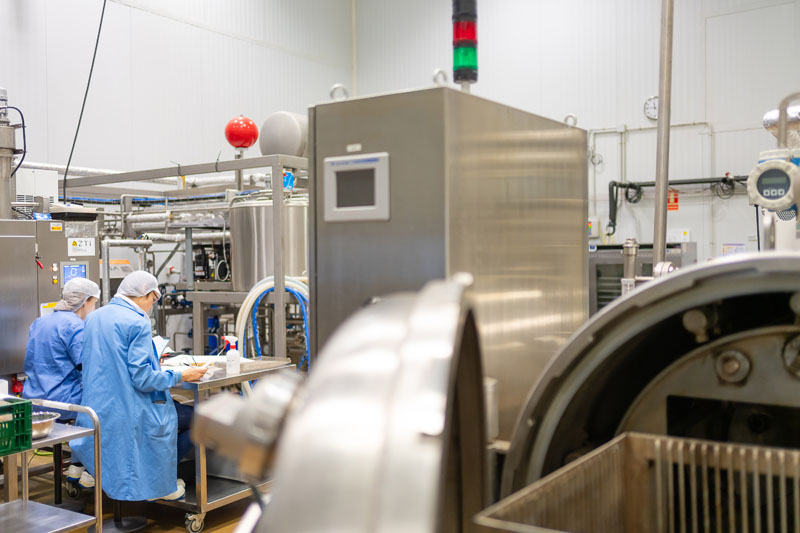Novel Smart Tags solutions to increase consumer trust and value chain transparency of food products
Últimas noticias
The first shortfin mako shark tagged in the Bay of Biscay by AZTI, advancing conservation efforts
Savour and sustainability: insects in gastronomy
Catching fish living at depths of more than 200 meters may have climatic consequences
A new EIT food project called Smart Tags has recently started. The aim of the project is to increase consumer trust towards food products and systems by sharing information about the value chains, during the whole life-cycle of the products. The project will provide consumers and suppliers with an interactive connection, by using so called smart labelling or smart tags. This can include for example a possibility to give feedback, ask questions, and co-create and develop products and services. This will also enable the food industry to better understand their customers’ needs and therefore allow them to develop the products and services they are asking for.
In a highly globalised world where food value chains are often long and complicated, consumers find themselves lacking trust in the information they are given by their suppliers. Research show that there is a gap between the level of information consumers want on food packaging, and what is currently displayed there. Information consumers are interested in are for example what ingredients are used, origin of the ingredients, the product’s sustainability, fair trade, authenticity, transportation methods, shelf life, and how recyclable the packaging is. Consumers often find nutritional information hard to interpret. In addition, many products are often decorated with slogans with vague claims like “sustainable”, “natural” or “healthy” – without supporting those slogans with facts and figures.

For consumers, a Smart Tag can be a simple barcode that can be read by mobile phone or visible colour change in indicator, allowing them to access more relevant and real-time information. These smart tags can also be used to enable the customer to give feedback or to communicate with the producers, suppliers or other stakeholders. Smart tags mean visible or electronic markers with environmental sensing functions like functional ink, sensors or indicators, combined with software intelligence. When some parts or areas of a 2D barcode are printed with the functional ink, the scanning result of the code changes dynamically when the state of the functional part changes. When conditions of the surrounding environment change, such as ambient temperature, lighting or humidity, parts of the barcode appear, disappear or change colour and the scanning result change accordingly.
The Smart Tag project is coordinated by VTT Technical Research Centre of Finland, but the consortium consists of research partners, food industry and technology developers all over Europe. The partners are University of Reading (UK), University of Warsaw (Poland), KU Leuven (Belgium), Matis (Iceland), AZTI (Spain), DouxMatok (Israel) and Maspex Group (Poland). The Smart Tag project is supported by EIT Food, a body of the European Union.
The novel solutions and service concepts utilising Smart Tag technologies will be co-created together with consumers and other stakeholders in all participating countries. The Smart Tag project will run throughout 2021 and can be followed on the project’s webpage and Twitter account.








